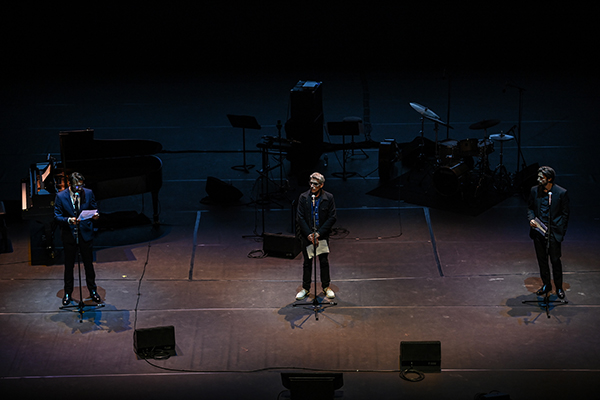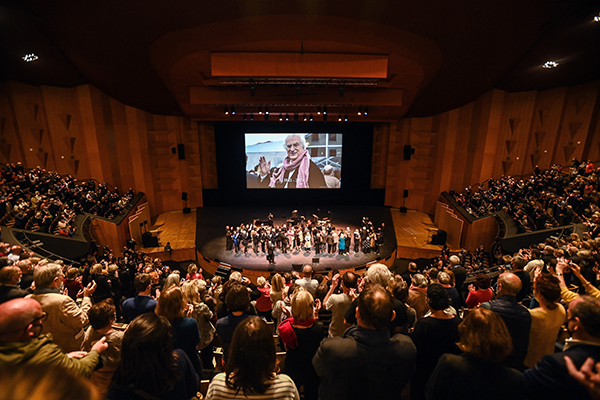A "secular mass" for Tavernier
PostED ON OCTOBER 11
An auditorium packed to the rafters celebrated the memory of the late director last night with uncommon emotion.
Has the memorial of a departed artist ever given rise to such a joyous evening? First of all, is Bertrand Tavernier really deceased? His images and words are still circulating in the air, filling the streets. All the more so here in Lyon, which he helped put on the map of world cinema, this city of the Lumière Institute, its biggest gem. The evening began - and concluded - with a standing ovation, even before a single word was spoken. This was followed by a journey through his films, curated and presented by Thierry Frémaux, who was steady on his feet, but whose voice occasionally gave away uncharacteristic emotion during what he described as a "secular mass", held "so that we remember what he brought to the city of Lyon, to art in general".
The Director of the Lumière Institute continued, "Many of us have seen our lives change through knowing him; I was among the first to be surprised by that press conference [given in 1982- editor’s note] in the basement of the Château Lumière, announcing the creation of the Institute.
 Samuel Le Bihan, Jacques Gamblin and Raphaël Personnaz read fragments
Samuel Le Bihan, Jacques Gamblin and Raphaël Personnaz read fragments
from Bertrand Tavernier's unfinished autobiography
© Olivier Chassignole
Between the film extracts – from The Judge and the Assassin, Spoiled Children, ‘Round Midnight - frequent musical interludes punctuated the evening to honour this afficionado of jazz, thanks to the celestial participation of the Henri Texier trio, or Jeanne Cherhal. The high point was undoubtedly the reading of the unpublished pages of his unfinished autobiography. Each in turn, standing in front of a microphone, with no fanfare, only the light bathing their faces in muted tones, Raphaël Personnaz, Jacques Gamblin and Samuel Le Bihan read extracts, including one on the death of Tavernier’s friend, Didier Bezace. "He has gone," he had written, "to join the circle of men who surround me and who are, by the force of things, more and more numerous. I loved his willingness to share, without pedantry, without dogmatic or moralising discourse". Bezace loved the "contact with the audience without ever trying to flatter it". Clearly, by evoking his friend who had died just a year before him, Bertrand Tavernier was creating something of a disguised self-portrait, in the twilight of his life.
Carlos Gomez
 © Olivier Chassignole
© Olivier Chassignole

